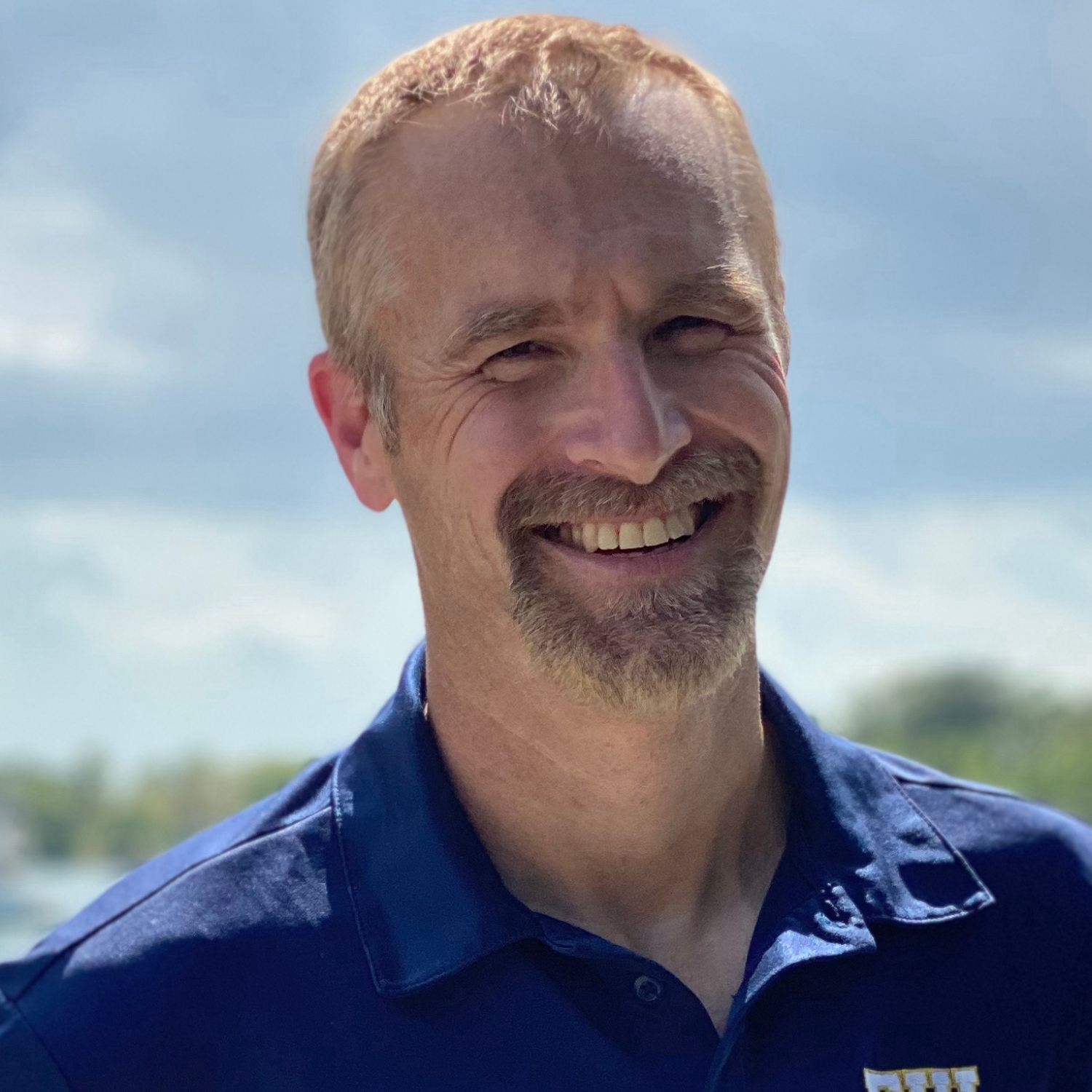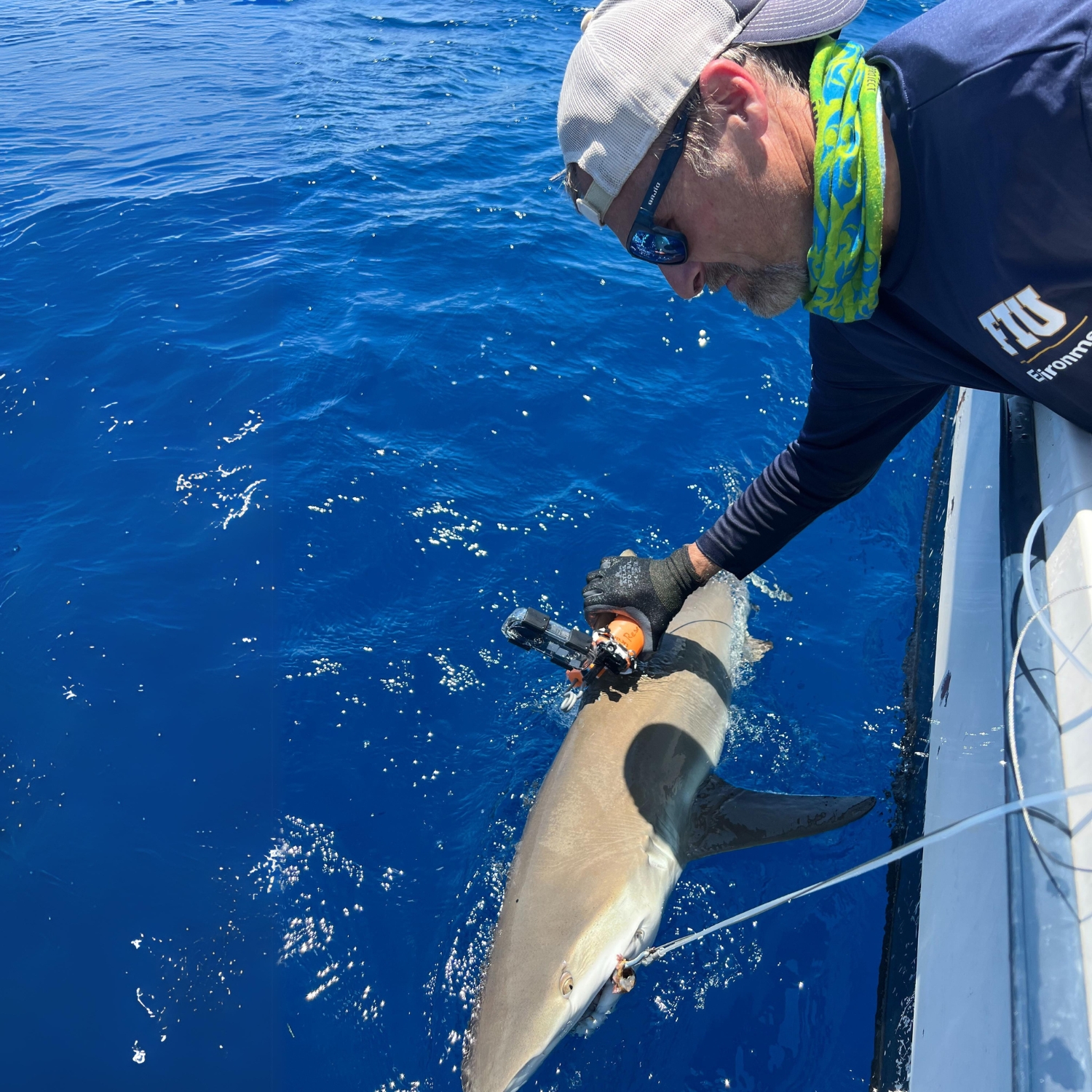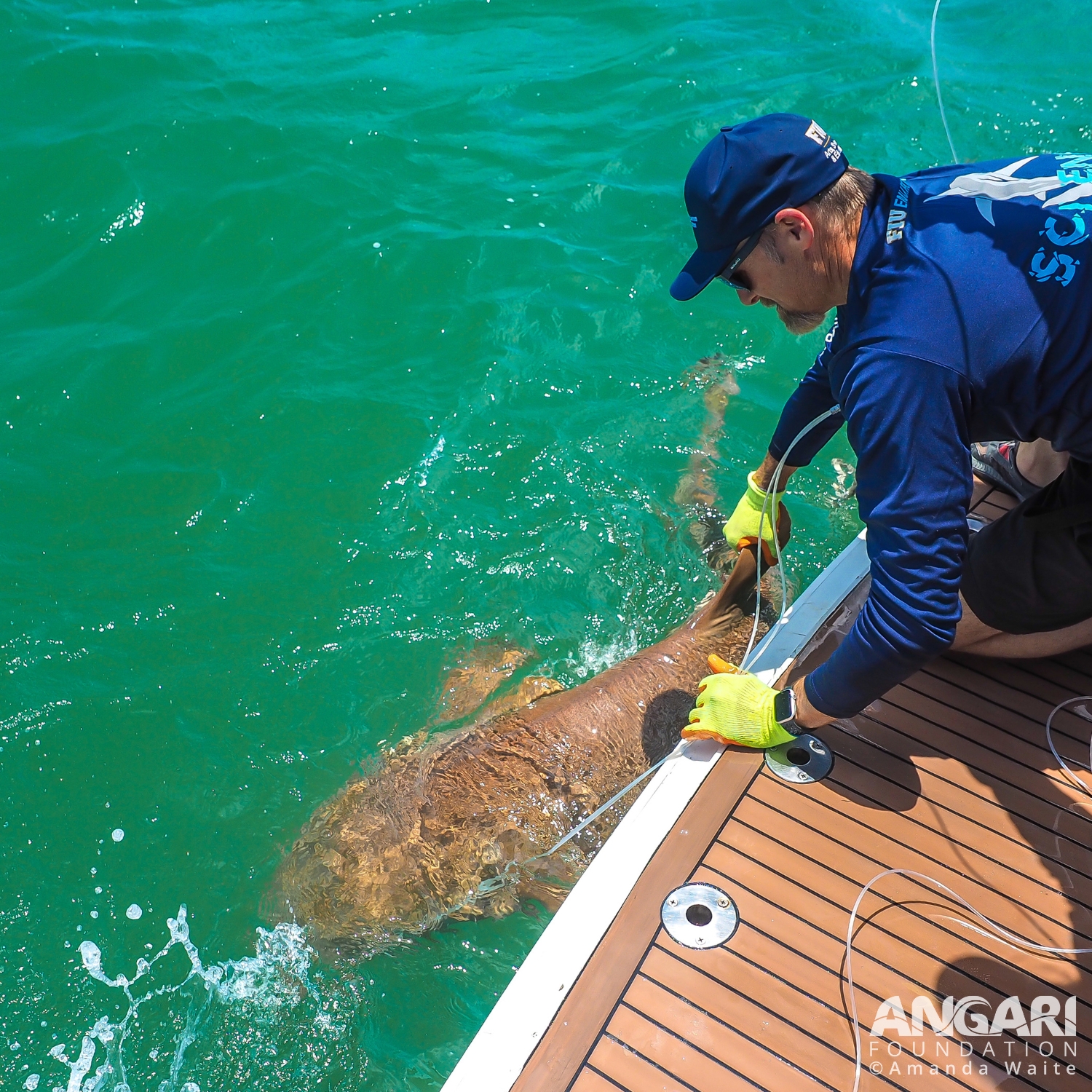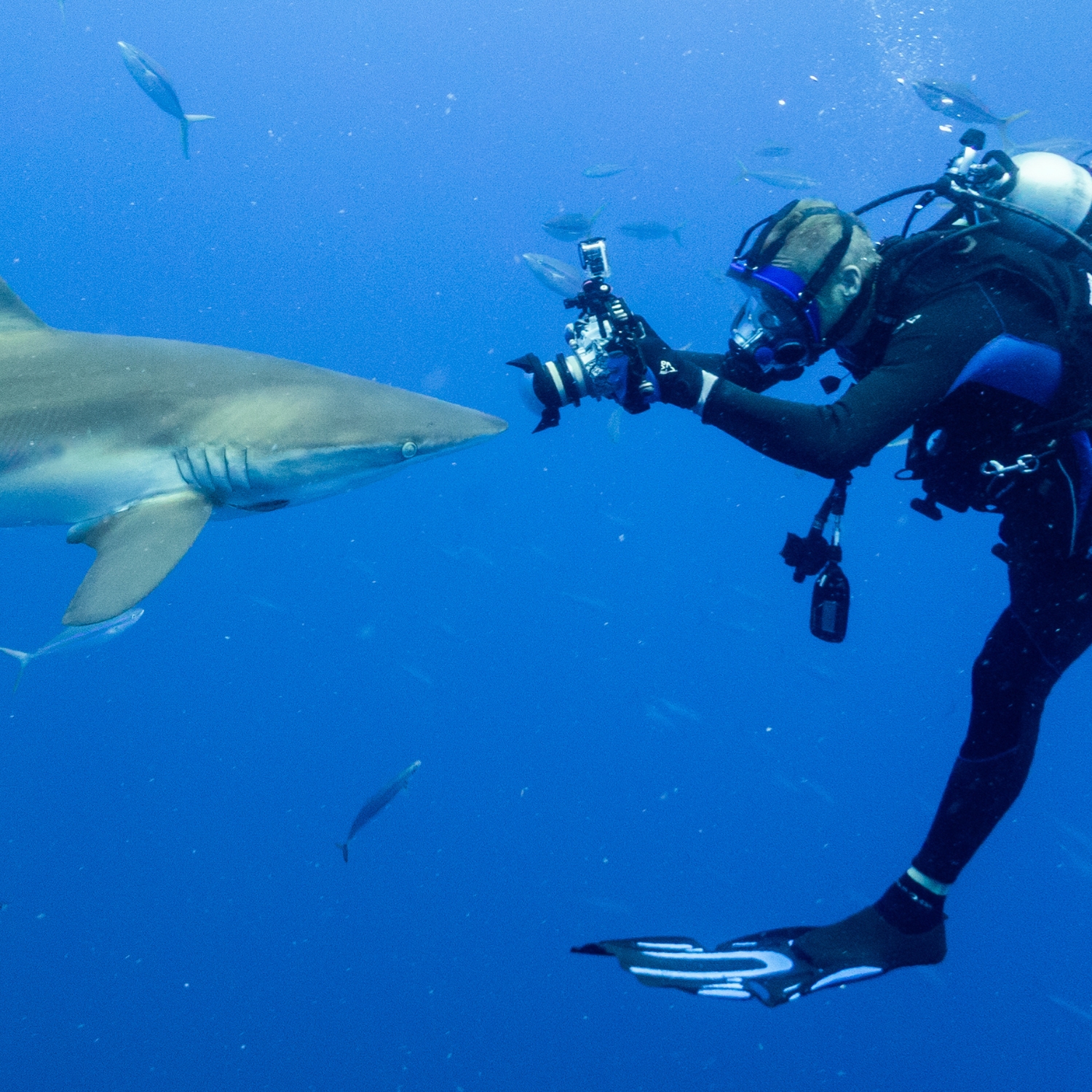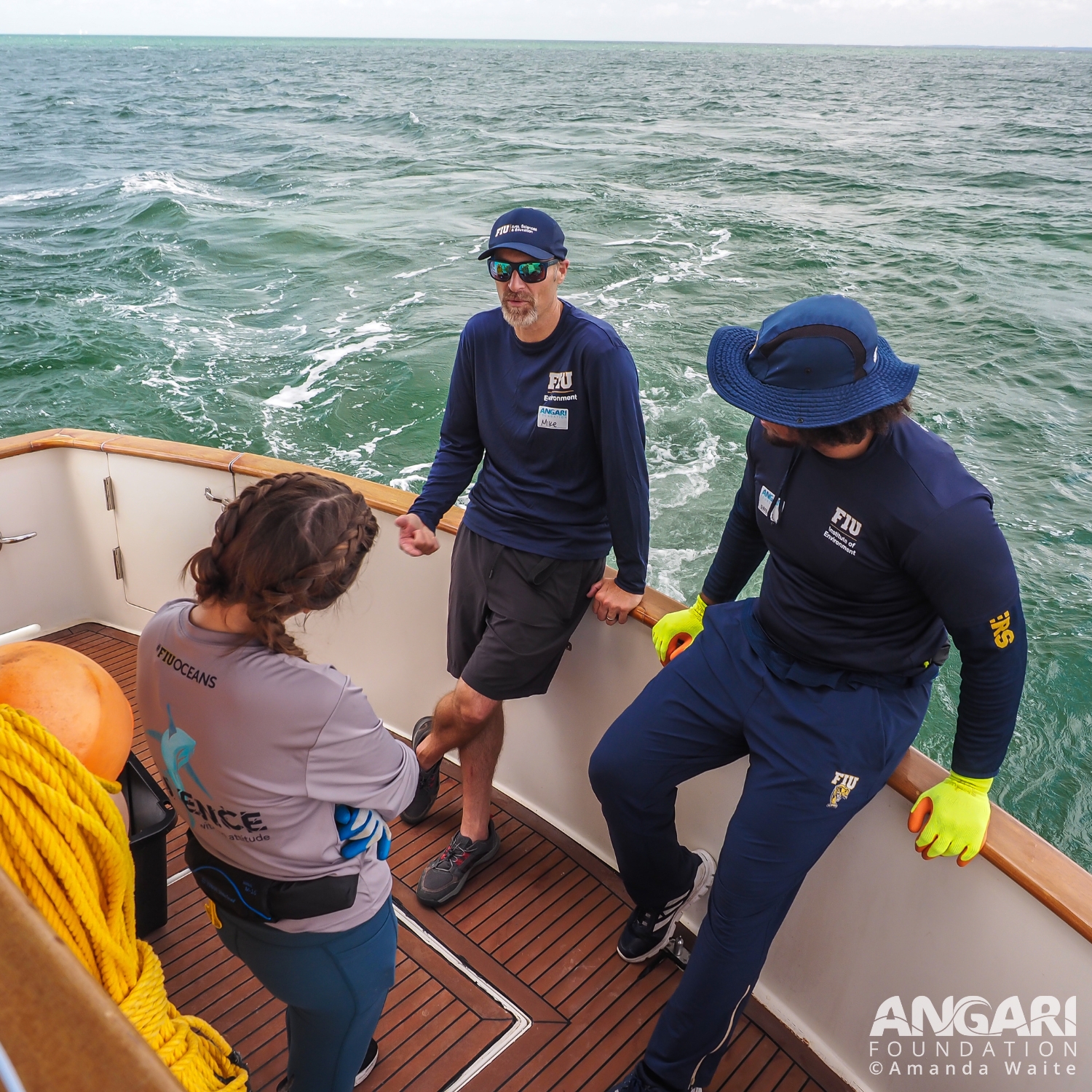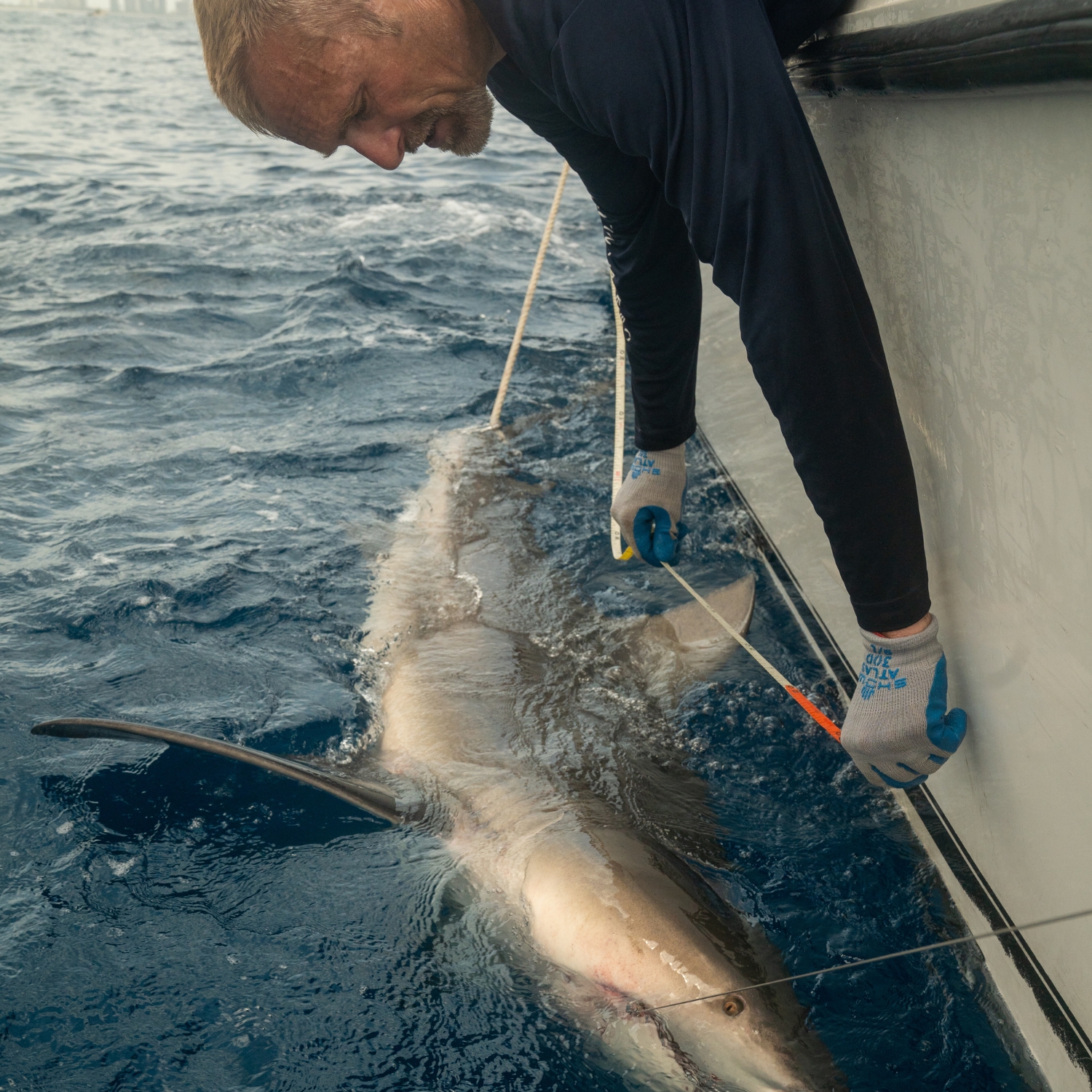



Meet Mike Heithaus
I am the executive dean of the FIU College of Arts, Sciences & Education and a marine ecologist specializing in predator-prey interactions and the ecological importance of sharks. In our research, we use the latest technologies to unravel the mysterious lives of hard-to-study marine creatures and to understand the ecological importance of sharks and other large marine species like marine mammals and sea turtles. Before joining FIU, I was a scientist at Mote Marine Laboratory’s Center for Shark Research. I am also passionate about science education. I have worked on K-12 education programs and appeared in more than 30 natural history documentaries for PBS, National Geographic’s SharkFest, and Discovery Channel’s Shark Week.
2001 Ph.D. Biological Sciences, Simon Fraser University
1995 B.A. Biology, Oberlin College
Get To Know Mike
I grew up in central Ohio and spent a lot of time exploring the forests, rivers and ponds there. Those experiences really ignited my love of nature and animals and helped me develop the curiosity I have in general. In the winter, I got to visit my grandparents in Naples, Florida and go deep sea fishing. Growing up, I looked forward to that trip as one of the highlights of the year. That, as well as watching amazing documentaries online, inspired my interest in the oceans and my desire to be a marine biologist.
Honestly, I can’t really answer that because it changes all the time. There are so many cool animals out there and the more you learn about them the more fascinating they become.
We are working on quite a few projects in the lab, many of them involving collaborations with lots of people. For example, we are working on the Global FinPrint project to determine the places where reef sharks and rays are doing well, where they are in trouble and what we can do to protect and rebuild their populations. We are also working to learn how important sharks might be to the health of reef communities. Given how important reefs are to people, this is an important project – and one that we are continuing as we work with local scientists, communities, NGOs and governments around the world. We are also doing projects locally in Florida to understand the roles juvenile bull sharks play in estuarine ecosystems, what influences differences in “personalities” among individuals and how they are influenced by environmental change including restoration. The lab is also collaborating on projects in the Florida Keys and off South Florida to investigate and try to provide solutions for shark depredation of sport fishing. These are just a taste of some of the projects we are working on – we also are studying predator-prey interactions in general, shark-dolphin interactions, sea turtle behavior and ecology and the behavior of crocodilians to name a few.
My goals are broadly to learn more about animals and ecosystems, so we can predict how they will respond to environmental changes (and hopefully intervene where needed), and help use our work to inspire the public and cultivate curiosity.
We always try to fit the technology to the questions we ask. Sometimes old tech is still the best tech for a particular question, but we also have been using cameras and sensors on animals, and we always are trying to improve them. We also use the latest camera tech (that we can afford) for underwater surveillance or on drones to get an aerial view of the world.
When it is done right, film and media can be great for both research and education. Sometimes films let us try out methods that we wouldn’t have funding for otherwise and help us collect data that lead to new insights or new proposals that do more. It was films that helped fund a lot of my early work in Australia that went on to become a huge project with many collaborating scientists. Films and media also let us reach a lot of people that we wouldn’t otherwise, to provide information that is really important or to inspire them in many ways.
I went to Oberlin College to get an undergraduate degree in biology, worked as a biologist for a year for the local park service after graduation, and then went to Simon Fraser University in British Columbia to do my Ph.D. research. After that, I was a postdoctoral scientist at Mote Marine Laboratory and then a staff scientist. Before coming to FIU as an assistant professor, I was at National Geographic’s Remote Imaging Laboratory to help with the deployment of Crittercams and even hosted a show on the National Geographic Channel.
There aren’t many typical days for me – it really depends what hat I am wearing on that day. As a scientist, I may find myself in the field collecting data, at my computer analyzing data or writing papers or grant proposals. I also spend time working directly with the other members of the lab helping them with their projects. As dean, there is plenty of time in meetings but also working with other faculty, staff and students making sure we are being innovative in our approaches to helping students achieve their dreams and supporting the research and creative works of our faculty, students and staff that make an impact in the community. I also get to spend time doing talks in schools, working with the media and creating documentaries. One thing I never am is bored.
I look for people who have taken opportunities to get involved in a range of projects or activities. Having practical skills as well as scientific ones is important for the fieldwork we do in the lab, and so is having experience working with teams of people. I also look for students who are very curious in general and want to know more about a wide range of topics.
There are lots of rewarding aspects of the job. It is a privilege to be able to work with such amazing animals in incredible places. It’s an honor to meet and work with so many inspiring scientists and people, and it is incredibly satisfying to learn new things, see our work help affect positive management or change or inspire someone to care. The challenging parts are doing the hard work to keep projects funded and being prepared to deal with the inevitable roadblocks or challenges in the field when things don’t go as planned. Oh, and mosquitoes…definitely mosquitoes when we are in the Everglades!
Spare time? I’m not sure I am familiar with this concept. In all honesty, I enjoy spending time with my family – watching or coaching softball, baseball and soccer. I love nature photography and exploring new places with other people.
If you are interested in a career in marine biology, I think the two most important things to do early on are to work hard in school and to get out and explore nature around you. It doesn’t have to be oceans – there are amazing places to explore no matter where you are. While you explore, ask questions and be curious! Later on, start taking any opportunity you can to volunteer or get involved in projects. The more experiences you have the better!
Learning new things, being in nature and seeing our work make a difference in any way keep me inspired. As for drive, my goal is always to try to have the biggest positive impact on the world that I can.
Interview conducted in August 2023

